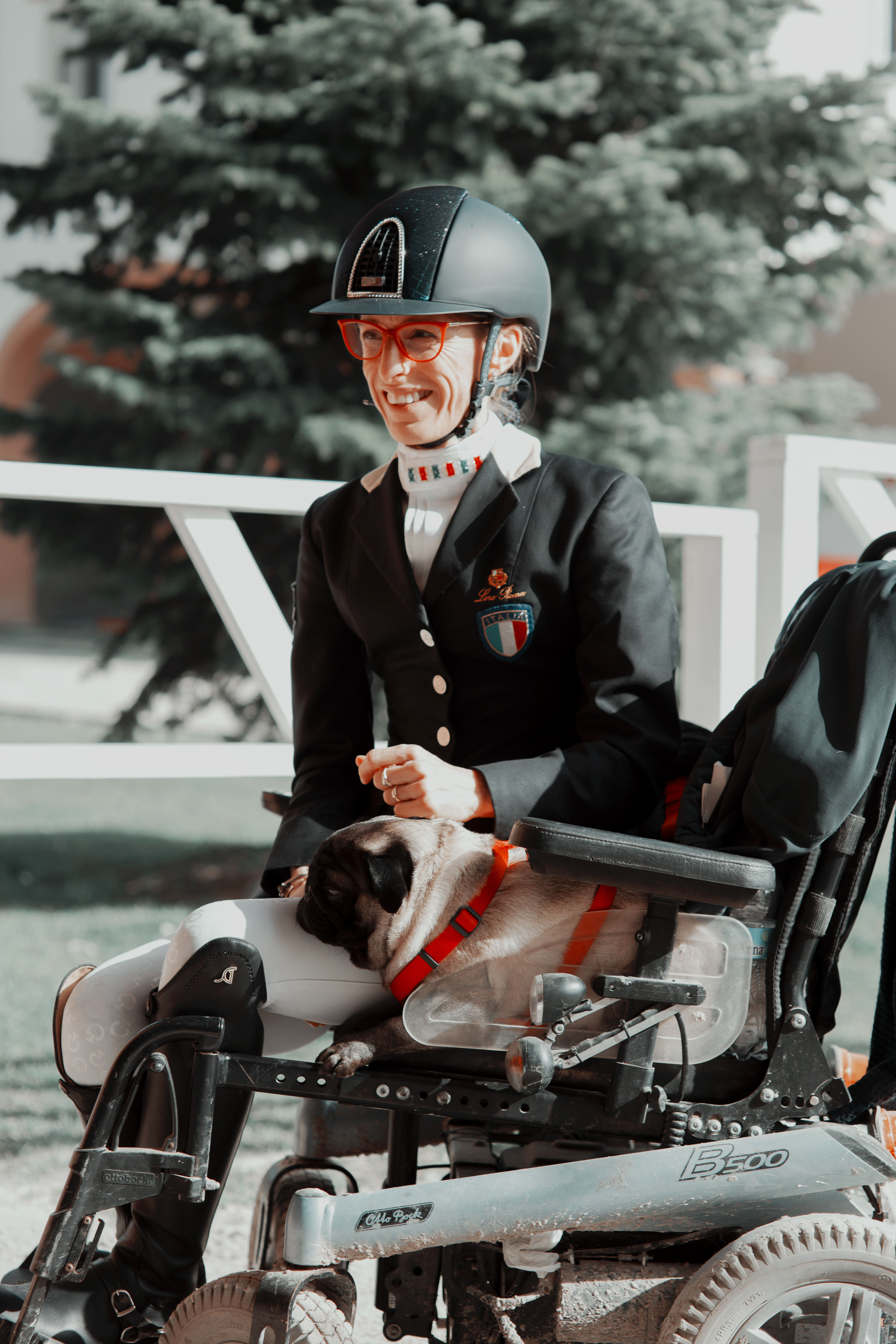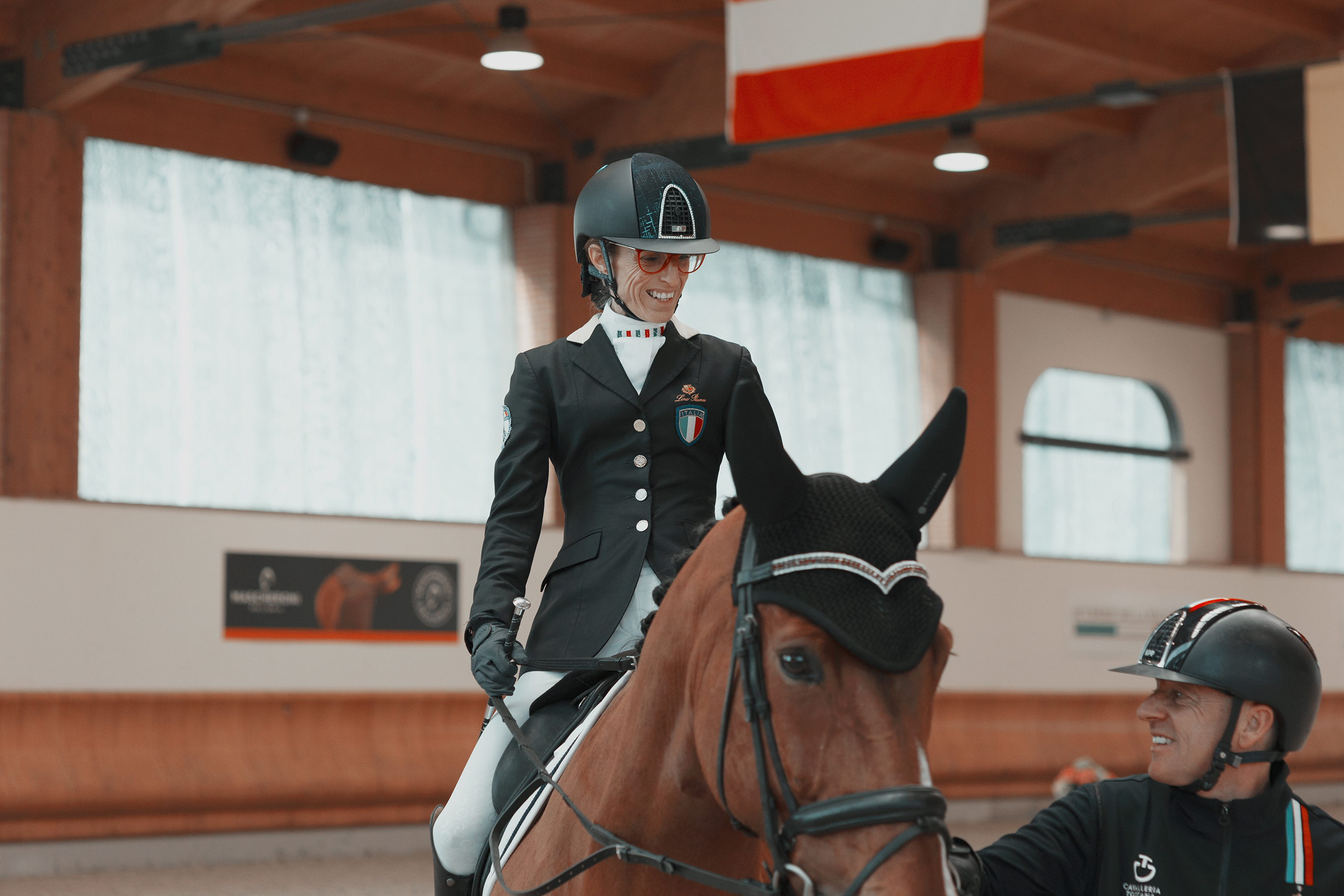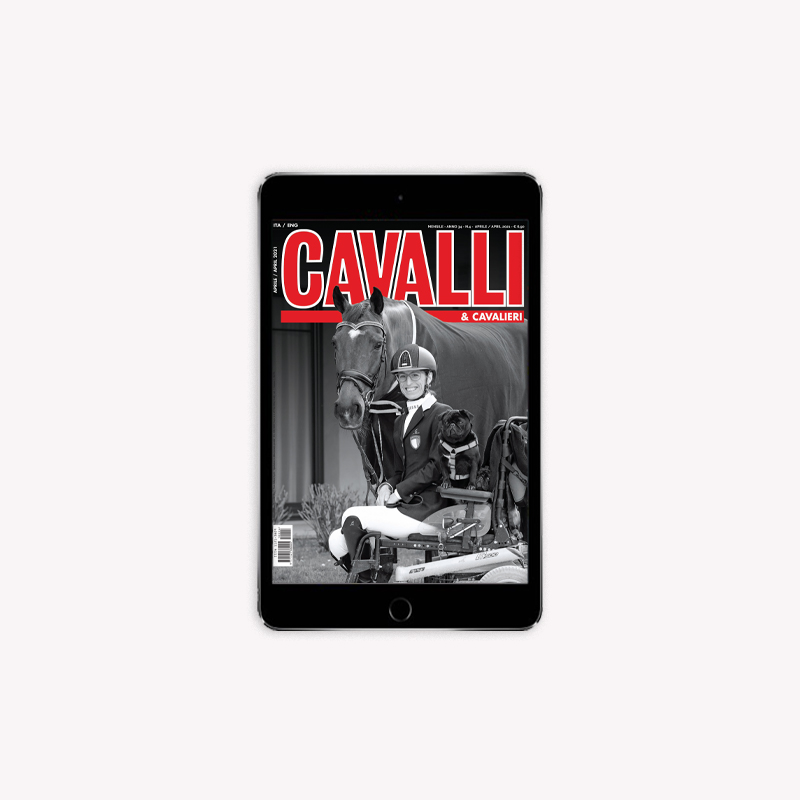Men and women have always competed as equals in equestrian sports. Let’s talk about sport, passion and motivation: interview with Sara Morganti.

Sara Morganti, born in 1976, is one of the Italian riders who have most inspired her entire country. Thanks to determination, strength and resistance she is now living her dream and proving that sacrifice and dedication are always rewarded .
What did you dream of as a child? Did you always want to be a rider or did you want something else for your future?
As a child I dreamed of becoming a ballet dancer. Living in a small town in the province of Lucca (Italy), I didn’t have many chances to take lessons, so I dedicated myself to other things. I’ve always loved all sports very much, so I did everything I could think of: athletics, hight jumping, long jump, etc. I started riding when I was 13, following the example set by my older sister who had started taking lessons some time before. From the moment I got into the saddle, I never got off!
What role has family played in your career?
My family has always played a very important role in my athletic journey. I have a very big family, our parents taught us from a very young age that one needs commitment and determination if one wants results.. Whatever path I would have taken, I would not have achieved it without sacrifice. Nothing should be left to chance.
Christmas presents, for example, were only at Christmas. When I did well in school my parents were happy, but there was no reward for doing well because that was my duty. This attitude equipped me with a way of approaching life that is what led me to the results I have today, and for that I will always thank them.
There are no alternative ways, the only way to make it is with commitment and sacrifice.

What should a sportsman be like in your opinion?
First of all he must be a Sportsman with a capital S, with all that it implies: joyful when you win, knowing how to accept defeat, fair play.
Resilient, because one needs a lot of resistance and the ability to pick yourself up. A sportsman must have a strong intrinsic motivation that comes from within, and the strength that drives one to make sacrifices. f it comes from the outside, the result is not the same.
Finally, I would say brave, because he has to deal with an activity with many question marks and one must be willing to face them.
Speaking of fair play, over the course of your career, do you remember a time when one of your “colleagues” supported you?
Yes support from women who compete in the same sport as me is very important, but it’s even better when you get it from your direct rivals. And it’s an extraordinary thing that has happened to me over the years, receiving support and congratulations from direct opponents and athletes from other countries.
To me it is a beautiful form of mutual support. That’s what being a sportsperson means to me: recognising that someone else can do better than you and supporting them.

Would you like to name any women you respect who are an inspiration in the sports world in general?
Not because I’m biased, but one of my idols is Laura Conz. She is the sports coach that trains me and she is the example of a woman who is fulfilled in sports and in life at the highest level. She has done so much, I don’t even know how she manages everything she does. She will always be one of the people I admire the most.
Another woman I admire a lot is Sara Simeoni, who I met on March 8th in Lucca at a conference. During her speech she said that when she won the Olympics in Moscow and set the world record in the high jump she was the only woman among many men! We need to be aware that we reap the benefits of these women who like her fought so that we could have equal rights. I can’t help but admire all those women who many years ago were the only ones competing at high levels alongside men.
During your career there have been two periods during which you stopped, one was right after the 2006 Championships due to illness, and then again when you fractured your tibia and fibula in 2011. How were you able to motivate yourself to get back in the saddle?
Yes, my first stop in 2006 happened because I decided to pursue treatment for neuropathic pain, which is a pain that cannot be treated with normal anti-inflammatories and very often not even with even heavier treatment. I stayed off my feet to see if it would get better, but since I cannot keep completely still, I graduated from university during that time. At least I got my brain working!
When I realized it wasn’t getting any better, I started to train again If I’m going to be sick, at least I should be riding a horse! On June 2, 2011, I suffered a serious fracture in my tibia and fibula when I had a bad fall. The European Championships were planned for August and I had been forbidden to compete because I had to rest my legs, due to the surgery I had undergone. I actually went anyway, and finished fourth.
There is no formula or fairytale one can tell oneself, the only motivation that drives you to go beyond your own physical strength is passion.
What advice would you give to women to help them have greater self-confidence ?
They must really believe in themselves and have the ability to dream of things that seem unattainable. What appears to be insurmountable can actually be transformed into obstacles that can be circumvented. If you have a lot of passion and commitment, anything can be done. You have to be willing to put everything you have into it.
Buy the April issue of Cavalli&Cavalieri Magazine and read the in-depth interview with Sara Morganti:


